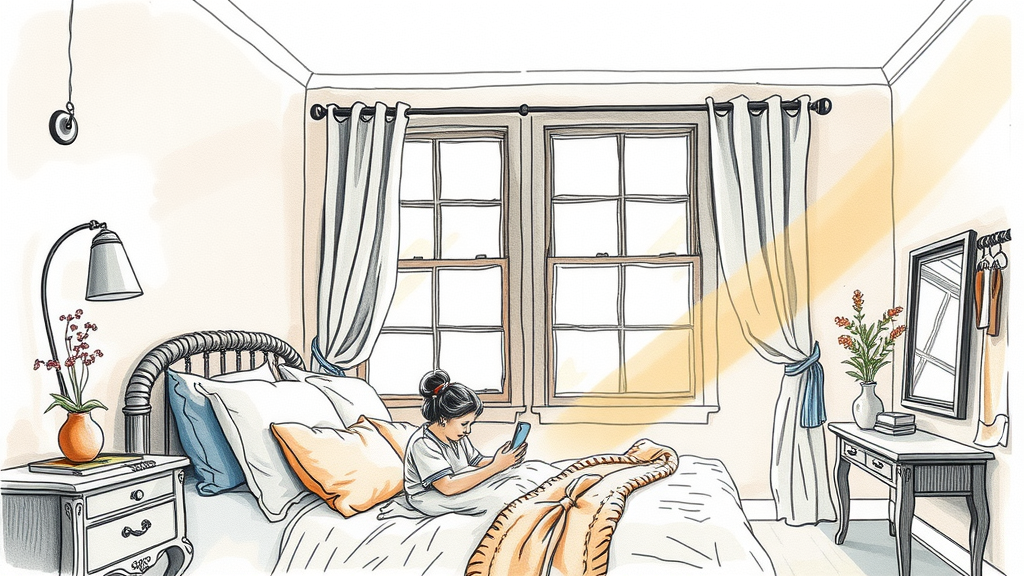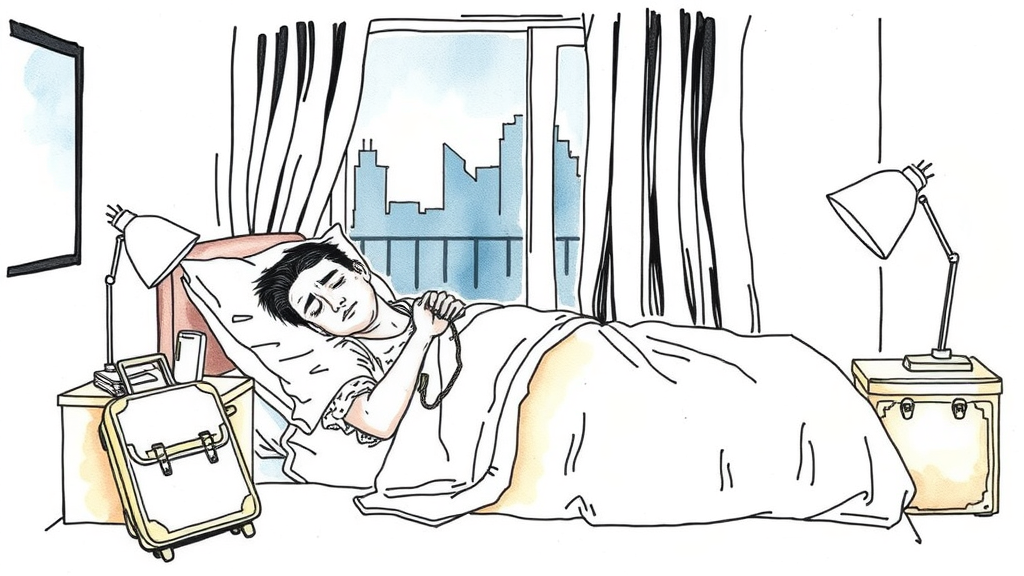· undefined · undefined · 13 min read
The Ultimate Guide to CBTI Sleep Therapy for New Parents
New parents struggling with sleep? Discover CBTI, a drug-free sleep therapy offering effective insomnia relief. Reclaim restful nights!
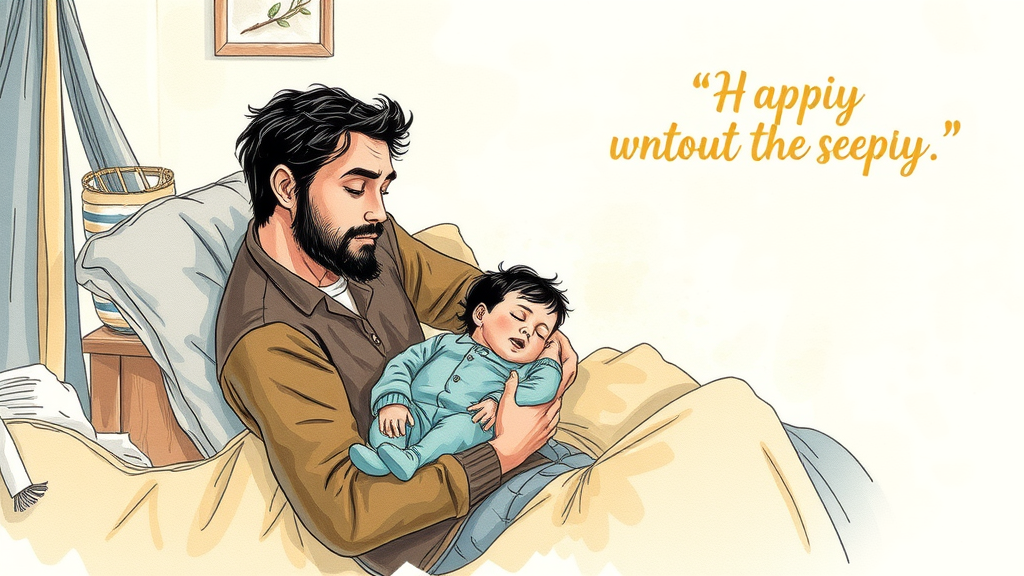
Embracing Rest: Why CBTI is a Game-Changer for New Parents
Welcoming a new baby into the world is an experience filled with immense joy, profound love, and, for many, an unprecedented level of sleep deprivation. The endless nights of feeding, comforting, and changing can quickly turn into a chronic battle against exhaustion, leaving new parents feeling overwhelmed, irritable, and struggling with persistent insomnia. This isn’t just about feeling tired; for many, it evolves into a serious struggle to fall or stay asleep even when the baby is finally resting. If this sounds familiar, you’re not alone, and there’s a powerful, effective solution that doesn’t involve medication: CBTI.
Cognitive Behavioral Therapy for Insomnia (CBTI) is recognized as the gold standard drug free sleep treatment for chronic insomnia. It’s a comprehensive sleep therapy that addresses the thoughts, feelings, and behaviors that contribute to sleep difficulties. For new parents navigating the unique challenges of infant sleep patterns, CBTI offers practical, sustainable strategies to improve sleep quality and quantity, helping you reclaim much-needed rest and well-being.
This ultimate guide will delve into what CBTI entails, why it’s particularly beneficial for new parents, its core components, and how you can implement its principles to achieve significant insomnia relief. Let’s explore how CBTI can empower you to find restful nights amidst the beautiful chaos of new parenthood.
Understanding the New Parent Sleep Landscape
Before diving into CBTI, it’s crucial to acknowledge the unique sleep challenges faced by new parents. It’s not just about getting less sleep; it’s about the quality and fragmentation of that sleep. The constant vigilance, the unpredictable feeding schedules, and the sheer emotional and physical demands of caring for a newborn create a perfect storm for sleep disruption. Many parents develop anxiety around sleep, leading to a vicious cycle where the fear of not sleeping further exacerbates insomnia.
Beyond the baby’s needs, new parents often grapple with:
- Hormonal shifts: Especially for new mothers, postpartum hormonal changes can significantly impact sleep architecture.
- Anxiety and stress: Worry about the baby’s health, development, and the overwhelming responsibility can lead to racing thoughts at night.
- Loss of personal time: The lack of opportunity to decompress or engage in pre-sleep routines.
- Identity shifts: Adjusting to a new role can be mentally taxing, affecting relaxation.
These factors combine to create a landscape where traditional sleep advice often falls short. This is where a structured, evidence-based approach like CBTI proves invaluable.
What is Cognitive Behavioral Therapy for Insomnia (CBTI)?
At its core, CBTI is a short-term, structured approach to treating insomnia that helps you identify and replace thoughts and behaviors that prevent you from sleeping well. Unlike quick fixes or sleep aids, CBTI provides tools and strategies that empower you to become your own sleep expert. It’s a drug free sleep treatment focusing on sustainable change.
CBTI operates on the principle that insomnia is often maintained by learned behaviors and negative thought patterns around sleep. It doesn’t just treat the symptom (lack of sleep) but addresses the root causes of chronic sleep problems. This comprehensive sleep therapy often involves working with a trained therapist, though self-help resources and online programs are also available.
The therapy is highly individualized, recognizing that everyone’s insomnia is unique. It focuses on practical strategies to reset your sleep system, improve your sleep environment, challenge unhelpful beliefs about sleep, and manage stress and anxiety that contribute to sleeplessness. For individuals in demanding roles, like new fathers adjusting to parenthood or new mothers navigating postpartum changes, CBTI provides tailored solutions to their specific sleep challenges.
Why CBTI is Uniquely Suited for New Parents
Given the unpredictable nature of parenting, why is CBTI the ideal sleep therapy? Its strength lies in its flexibility and its focus on underlying behavioral and cognitive patterns, rather than just symptom management. Here’s why it’s a game-changer:
- Drug-Free Approach: For parents concerned about medication side effects or dependency, particularly while breastfeeding or simply wanting a natural solution, CBTI offers a completely
drug free sleep treatment. This is a significant advantage when you’re responsible for a vulnerable infant. - Sustainable Skills: CBTI teaches you lifelong skills. It’s not a temporary fix but an education in managing your sleep. This means even as your child’s sleep patterns evolve, you’ll have the tools to adapt and maintain healthy sleep habits.
- Addresses Anxiety: A major component of new parent insomnia is anxiety—worry about the baby, about not getting enough sleep, about the day ahead. CBTI directly tackles these anxious thoughts, which are often at the core of
insomnia. - Flexible for Fragmented Sleep: While some CBTI components, like sleep restriction, can be challenging with a newborn, a CBTI therapist can adapt the program to the realities of fragmented sleep. The goal isn’t perfect sleep from day one, but rather significant
insomnia reliefand improved sleep efficiency within the existing constraints. - Focus on Control: When so much of a new parent’s life feels out of control, CBTI offers a sense of agency over one crucial aspect: their sleep. This can be incredibly empowering.
Key Components of CBTI: A Toolkit for Better Sleep
CBTI is not a single technique but a combination of several evidence-based strategies. Each component targets a different aspect of insomnia, working synergistically to restore healthy sleep patterns. Understanding these elements is key to achieving lasting insomnia relief.
Sleep Restriction: Rebuilding Sleep Drive
This might sound counterintuitive for someone already sleep-deprived, but Sleep Restriction Therapy (SRT) is a cornerstone of CBTI. The goal is to reduce the time spent awake in bed, thereby increasing your sleep drive and making your sleep more consolidated and efficient. Initially, this involves setting a strict bedtime and wake-up time, matching the actual amount of sleep you’re currently getting. As your sleep efficiency improves, your “sleep window” is gradually extended. For new parents, this often means focusing on maximizing consolidated sleep during specific blocks, rather than prolonged time in bed with fragmented sleep.
Stimulus Control: Reconnecting Bed with Sleep
Stimulus Control Therapy (SCT) aims to break the negative associations many people with insomnia develop with their bed and bedroom. When you spend hours in bed tossing and turning, your brain starts to associate the bed with wakefulness, frustration, and anxiety. SCT involves a set of rules to re-establish the bed as a place solely for sleep (and intimacy):
- Go to bed only when you are sleepy.
- If you can’t fall asleep within 15-20 minutes, get out of bed and go to another room.
- Do something quiet and non-stimulating (e.g., reading a physical book, listening to calm music) until you feel sleepy again.
- Return to bed only when sleepy.
- Repeat as many times as necessary.
- Wake up at the same time every day, regardless of how much you slept.
- Avoid napping (or keep naps very short and strategic if essential for new parent survival).
This component is crucial for anyone seeking insomnia relief by retraining their brain to link the sleep environment with actual sleep.
Cognitive Restructuring: Taming the Anxious Mind
Cognitive behavioral therapy for insomnia directly addresses the “cognitive” part of the equation. This involves identifying and challenging unhelpful thoughts and beliefs about sleep that contribute to insomnia. Examples include:
- “I’ll never get enough sleep.”
- “If I don’t sleep tonight, I won’t be able to function tomorrow.”
- “My baby’s sleep is so unpredictable; I can’t possibly sleep.”
Cognitive restructuring teaches you to replace these negative or catastrophic thoughts with more balanced and realistic ones. It helps you recognize that while sleepless nights are challenging, they are manageable, and one bad night won’t ruin your life. This is especially potent for insomnia relief in new parents, as anxiety is often a major driver of their sleep struggles. The principles applied here are similar to those used in general CBTI for caregivers, highlighting the universal applicability of addressing cognitive distortions for improved well-being.
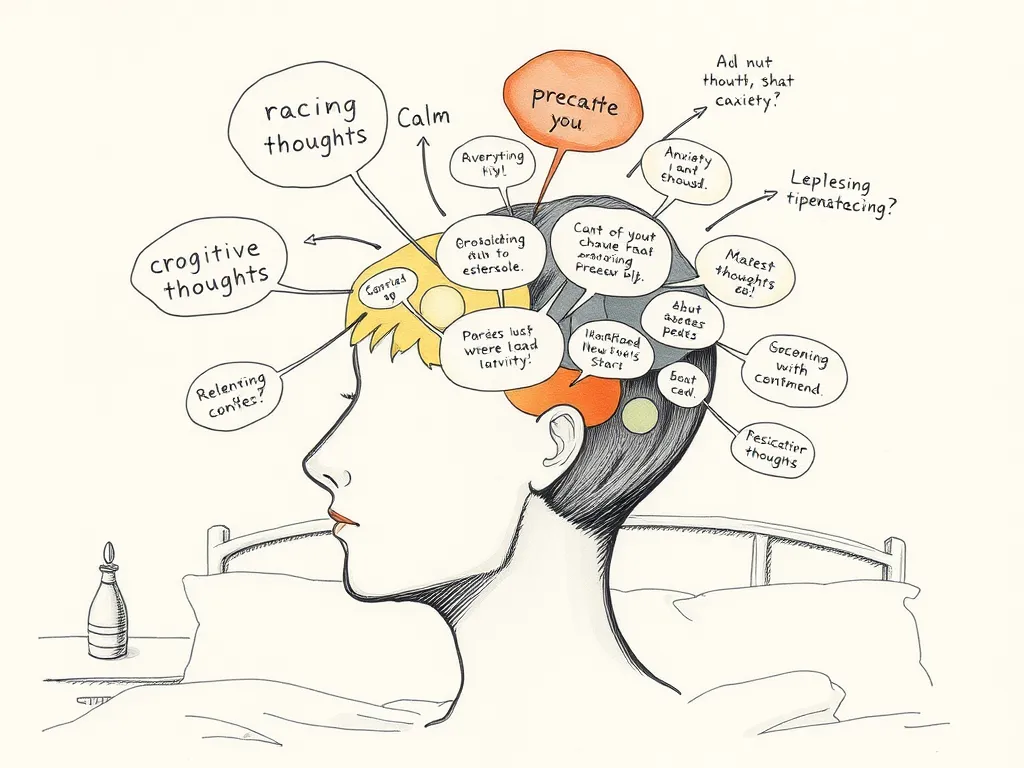
Sleep Hygiene Education: Laying the Foundation
While often mistaken for the entirety of CBTI, sleep hygiene is just one piece of the puzzle. It involves educating individuals on habits and environmental factors that promote good sleep. For new parents, optimizing sleep hygiene means making the most of every sleep opportunity. Key elements include:
- Creating a conducive sleep environment: Dark, quiet, cool bedroom.
- Establishing a relaxing pre-sleep routine: Even if it’s just 15 minutes before you anticipate a baby-free sleep window.
- Limiting stimulants: Avoiding caffeine and nicotine, especially later in the day.
- Mindful light exposure: Getting natural light during the day and dimming lights in the evening.
- Regular exercise: But not too close to bedtime.
- Consistent sleep schedule: As much as possible, even with a newborn, try to maintain a somewhat predictable wake-up time to regulate your circadian rhythm. While challenging, small improvements can lead to significant
insomnia relief.
Relaxation Techniques: Calming Body and Mind
Excessive arousal, both physical and mental, is a significant barrier to sleep. CBTI incorporates various relaxation techniques to help new parents quiet their minds and bodies before sleep. These can include:
- Progressive Muscle Relaxation (PMR): Tensing and relaxing different muscle groups.
- Diaphragmatic Breathing: Deep, slow belly breathing to activate the parasympathetic nervous system.
- Mindfulness Meditation: Focusing on the present moment, observing thoughts without judgment.
- Guided Imagery: Visualizing peaceful scenes.
Practicing these techniques regularly can reduce the physiological hyper-arousal often associated with insomnia, making it easier to drift off to sleep when the opportunity arises. This complements the drug free sleep treatment aspect of CBTI by teaching self-soothing skills.
Implementing CBTI Strategies Amidst Parenthood
Applying CBTI with a newborn requires flexibility and realistic expectations. A perfect 8-hour stretch of sleep might be a distant dream, but significant insomnia relief is achievable. Here’s how to adapt:
- Prioritize Sleep Windows: When the baby is sleeping, prioritize your rest. This means temporarily letting go of non-essential chores or errands. Even short, high-quality sleep chunks are beneficial.
- Team Approach: If co-parenting, divide night duties to allow each parent dedicated sleep blocks. Even 4-hour uninterrupted stretches can make a huge difference.
- Focus on Consistency, Not Perfection: While strict adherence to sleep restriction or wake times is ideal, new parents may need to adapt. The goal is to move towards more consistency over time, rather than demanding immediate perfection.
- Nap Strategically (If Needed): While naps are generally discouraged in CBTI for chronic insomnia, for new parents, a short, strategic “power nap” (20-30 minutes) can sometimes prevent dangerous levels of exhaustion, provided it doesn’t interfere with nighttime sleep consolidation.
- Seek Professional Guidance: A CBTI therapist specializing in parental sleep can help tailor the program to your unique circumstances, offering practical advice on managing disruptions while still working towards
insomnia relief.
Finding Support: When and How to Start CBTI
If you’ve been struggling with insomnia for three months or more, even with the presence of a newborn, and it’s impacting your daily functioning and well-being, it’s time to consider CBTI. While self-help resources can provide a good starting point, working with a certified CBTI therapist is often the most effective route, especially given the complexities of new parenthood.
Look for therapists certified in sleep therapy or cognitive behavioral therapy for insomnia. Many offer telehealth services, which can be incredibly convenient for busy new parents. Your primary care physician may also be able to provide referrals. Remember, seeking help is a sign of strength, not weakness. Investing in your sleep is investing in your overall health and your ability to be the best parent you can be.
Beyond Sleep: The Broader Impact of CBTI
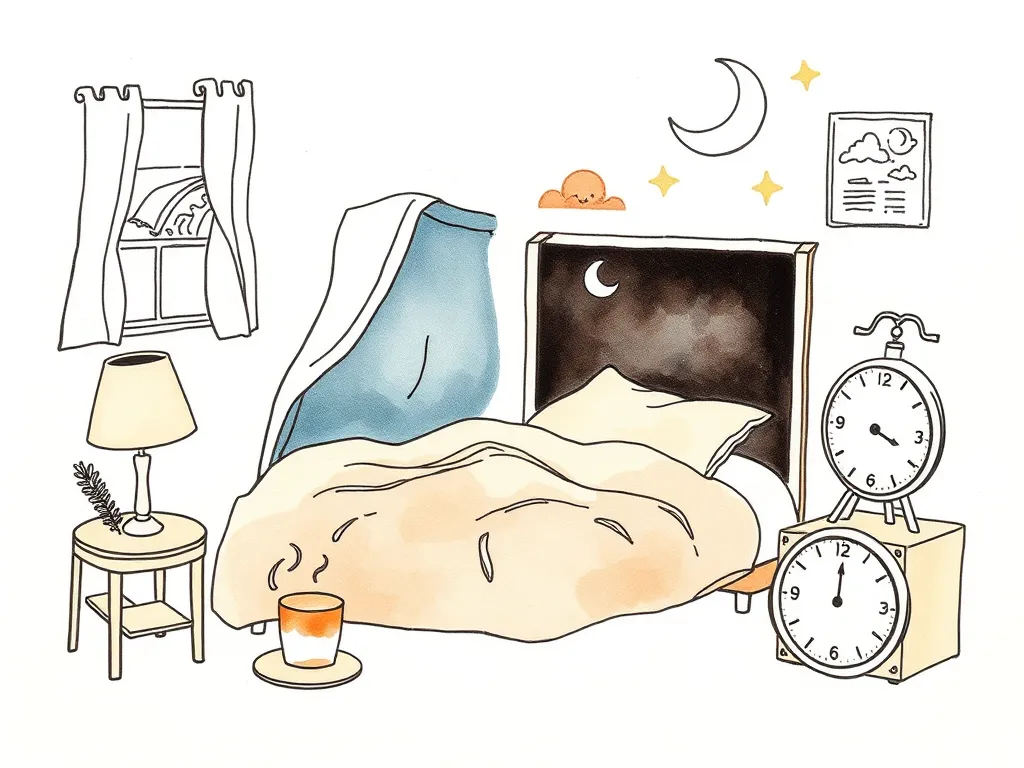
The benefits of CBTI extend far beyond simply getting more shut-eye. As a drug free sleep treatment, it offers holistic advantages that profoundly impact a new parent’s life:
- Improved Mood and Emotional Regulation: Better sleep directly correlates with improved mood, reduced irritability, and enhanced ability to manage stress and frustration. This means more patience and joy in your interactions with your baby and partner.
- Enhanced Cognitive Function: When you’re well-rested, your concentration, memory, and decision-making abilities improve. This is vital for navigating the complex tasks of new parenthood safely and effectively.
- Strengthened Relationships: Chronic sleep deprivation can strain relationships. By improving your sleep, you’re likely to have more energy and patience for your partner, fostering a more positive dynamic. Sleep is a fundamental pillar of health, just as important for teachers reclaiming rest and well-being as it is for new parents, impacting daily performance and long-term health.
- Better Physical Health: Adequate sleep supports immune function, hormone regulation, and overall physical recovery—all crucial for new parents.
- Reduced Risk of Postpartum Depression: While not a cure,
insomnia reliefcan significantly mitigate the risk and severity of postpartum depression and anxiety, acting as a powerful protective factor.
Embracing CBTI is an investment in your personal well-being, your family’s health, and your journey through parenthood. It provides the skills for sustainable insomnia relief and a path towards a more rested, resilient you.
Frequently Asked Questions About CBTI for New Parents
Q: Can I really do CBTI if my baby doesn’t sleep through the night?
A: Yes! While the ideal CBTI program assumes consistent sleep, a trained therapist can adapt the principles to accommodate fragmented sleep. The goal shifts from immediate 8-hour stretches to maximizing sleep efficiency during available windows and reducing anxiety around awakenings. Insomnia relief is still very much achievable, even if complete overnight sleep isn’t yet possible.
Q: Is CBTI a quick fix, or does it take a long time to work?
A: CBTI is not a quick fix; it’s a skill-building process. Most programs last 6-12 sessions, and you’ll likely start seeing improvements within a few weeks. However, sustained insomnia relief and lasting change come from consistent application of the learned strategies over time. It’s a journey, not a sprint, towards better sleep.
Q: What if I’m too tired to follow the CBTI rules?
A: This is a common concern for new parents. CBTI acknowledges this exhaustion. Starting with small, manageable changes is key. Working with a therapist helps tailor the program to your energy levels and offers encouragement. Remember, the initial challenge is an investment in long-term insomnia relief and reclaiming your energy.
Q: Does CBTI help with my baby’s sleep too?
A: CBTI is specifically designed for adult insomnia. While improving your own sleep and well-being might indirectly make you a more patient and effective parent in addressing your baby’s sleep, CBTI itself does not directly teach infant sleep training techniques. However, many of the foundational principles of good sleep hygiene apply to all ages, and your improved mental state will be a huge benefit to your family.
Q: Is CBTI truly a drug-free sleep treatment?
A: Absolutely. CBTI is entirely non-pharmacological. It focuses on behavioral changes and cognitive shifts, making it a powerful drug free sleep treatment. This is one of its primary benefits, especially for parents who prefer to avoid medication, offering sustainable insomnia relief through learned skills rather than external aids.
Assess Your Sleep Quality Today
Take our My Sleep Health Score assessment to get personalized insights about your sleep patterns and discover how CBT-I can help you achieve better sleep.

Don Schmidt
15+ years of experience in sleep therapy and Cognitive Behavioral Therapy for Insomnia (CBT-I). Passionate about connecting individuals struggling with sleep disorders to evidence-based, non-medical treatment solutions. Author of hundreds of articles and comprehensive guides on sleep health, CBT-I techniques, and overcoming insomnia. When not helping clients achieve better sleep, you can find me hiking with my family and dogs or enjoying a good book.
Ready to connect with a provider?
Allow us to connect you with a provider who can help.
